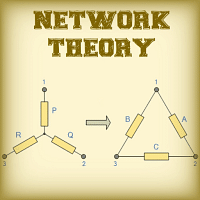Electrical Engineering (EE) Exam > Electrical Engineering (EE) Questions > Can you provide the weightage for the control...
Start Learning for Free
Can you provide the weightage for the control systems section in the GATE EE exam?
Most Upvoted Answer
Can you provide the weightage for the control systems section in the G...
Weightage for Control Systems in GATE EE Exam
Control Systems is an important subject in the Electrical Engineering (EE) category of the Graduate Aptitude Test in Engineering (GATE) exam. It plays a significant role in various areas of electrical engineering, such as power systems, robotics, automation, and signal processing. The weightage for the Control Systems section in the GATE EE exam is approximately 8-10% of the total marks. Here is a detailed breakdown of the weightage:
1. Conceptual Understanding and Basics
- Weightage: 3-4%
- This section tests the candidate's understanding of basic concepts and fundamentals of control systems.
- Key topics include mathematical modeling of control systems, transfer functions, block diagrams, signal flow graphs, and time and frequency domain analysis.
2. Time Domain Analysis
- Weightage: 3-4%
- This section focuses on the time response of control systems.
- Key topics include steady-state error analysis, transient response analysis, and stability criteria such as Routh-Hurwitz criterion and root locus technique.
3. Frequency Domain Analysis
- Weightage: 2-3%
- This section examines the frequency response of control systems.
- Key topics include Bode plots, Nyquist plots, gain and phase margins, and stability analysis using frequency response techniques.
4. Controllers and Compensators
- Weightage: 2-3%
- This section covers the design and analysis of various types of controllers and compensators.
- Key topics include proportional-integral-derivative (PID) controllers, lead-lag compensators, and state-space representation of control systems.
5. Feedback Control Systems
- Weightage: 1-2%
- This section focuses on the analysis and design of feedback control systems.
- Key topics include stability analysis using the Nyquist criterion and Bode plots, gain and phase margins, and compensation techniques.
It is essential for GATE EE aspirants to have a strong grasp of the Control Systems subject as it contributes a significant portion of the overall marks. By thoroughly understanding the key concepts and practicing numerical problems, candidates can enhance their chances of scoring well in this section of the exam.
Control Systems is an important subject in the Electrical Engineering (EE) category of the Graduate Aptitude Test in Engineering (GATE) exam. It plays a significant role in various areas of electrical engineering, such as power systems, robotics, automation, and signal processing. The weightage for the Control Systems section in the GATE EE exam is approximately 8-10% of the total marks. Here is a detailed breakdown of the weightage:
1. Conceptual Understanding and Basics
- Weightage: 3-4%
- This section tests the candidate's understanding of basic concepts and fundamentals of control systems.
- Key topics include mathematical modeling of control systems, transfer functions, block diagrams, signal flow graphs, and time and frequency domain analysis.
2. Time Domain Analysis
- Weightage: 3-4%
- This section focuses on the time response of control systems.
- Key topics include steady-state error analysis, transient response analysis, and stability criteria such as Routh-Hurwitz criterion and root locus technique.
3. Frequency Domain Analysis
- Weightage: 2-3%
- This section examines the frequency response of control systems.
- Key topics include Bode plots, Nyquist plots, gain and phase margins, and stability analysis using frequency response techniques.
4. Controllers and Compensators
- Weightage: 2-3%
- This section covers the design and analysis of various types of controllers and compensators.
- Key topics include proportional-integral-derivative (PID) controllers, lead-lag compensators, and state-space representation of control systems.
5. Feedback Control Systems
- Weightage: 1-2%
- This section focuses on the analysis and design of feedback control systems.
- Key topics include stability analysis using the Nyquist criterion and Bode plots, gain and phase margins, and compensation techniques.
It is essential for GATE EE aspirants to have a strong grasp of the Control Systems subject as it contributes a significant portion of the overall marks. By thoroughly understanding the key concepts and practicing numerical problems, candidates can enhance their chances of scoring well in this section of the exam.
Attention Electrical Engineering (EE) Students!
To make sure you are not studying endlessly, EduRev has designed Electrical Engineering (EE) study material, with Structured Courses, Videos, & Test Series. Plus get personalized analysis, doubt solving and improvement plans to achieve a great score in Electrical Engineering (EE).

|
Explore Courses for Electrical Engineering (EE) exam
|

|
Can you provide the weightage for the control systems section in the GATE EE exam?
Question Description
Can you provide the weightage for the control systems section in the GATE EE exam? for Electrical Engineering (EE) 2024 is part of Electrical Engineering (EE) preparation. The Question and answers have been prepared according to the Electrical Engineering (EE) exam syllabus. Information about Can you provide the weightage for the control systems section in the GATE EE exam? covers all topics & solutions for Electrical Engineering (EE) 2024 Exam. Find important definitions, questions, meanings, examples, exercises and tests below for Can you provide the weightage for the control systems section in the GATE EE exam?.
Can you provide the weightage for the control systems section in the GATE EE exam? for Electrical Engineering (EE) 2024 is part of Electrical Engineering (EE) preparation. The Question and answers have been prepared according to the Electrical Engineering (EE) exam syllabus. Information about Can you provide the weightage for the control systems section in the GATE EE exam? covers all topics & solutions for Electrical Engineering (EE) 2024 Exam. Find important definitions, questions, meanings, examples, exercises and tests below for Can you provide the weightage for the control systems section in the GATE EE exam?.
Solutions for Can you provide the weightage for the control systems section in the GATE EE exam? in English & in Hindi are available as part of our courses for Electrical Engineering (EE).
Download more important topics, notes, lectures and mock test series for Electrical Engineering (EE) Exam by signing up for free.
Here you can find the meaning of Can you provide the weightage for the control systems section in the GATE EE exam? defined & explained in the simplest way possible. Besides giving the explanation of
Can you provide the weightage for the control systems section in the GATE EE exam?, a detailed solution for Can you provide the weightage for the control systems section in the GATE EE exam? has been provided alongside types of Can you provide the weightage for the control systems section in the GATE EE exam? theory, EduRev gives you an
ample number of questions to practice Can you provide the weightage for the control systems section in the GATE EE exam? tests, examples and also practice Electrical Engineering (EE) tests.

|
Explore Courses for Electrical Engineering (EE) exam
|

|
Suggested Free Tests
Signup for Free!
Signup to see your scores go up within 7 days! Learn & Practice with 1000+ FREE Notes, Videos & Tests.























